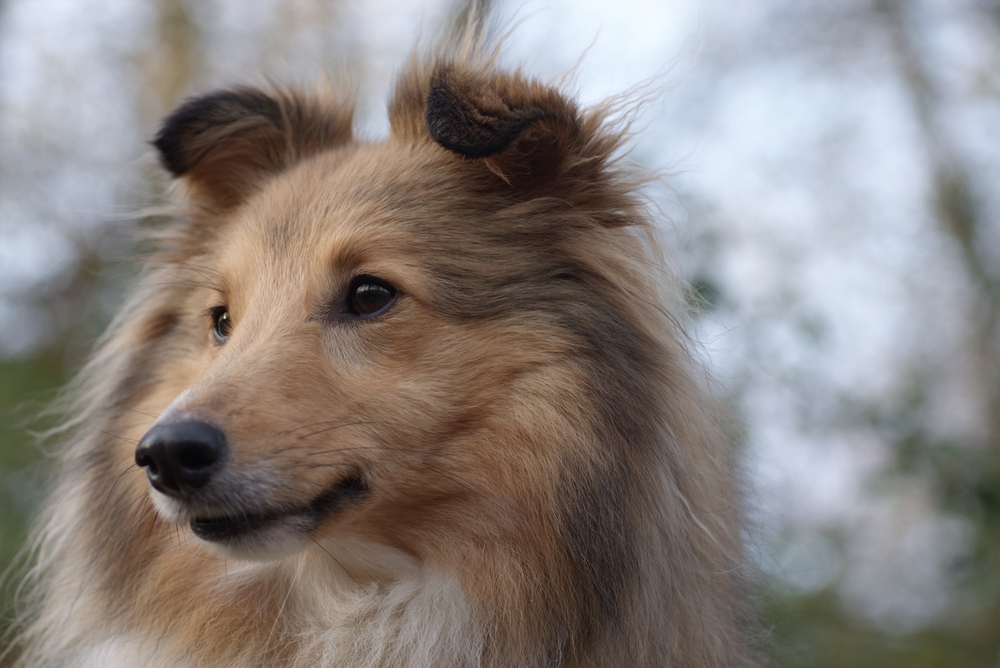What is a Yeast Infection in Dogs?: Dog Yeast Infection Symptoms & How to Deal With It
January 23, 2024 | By David Jackson
Yeast infections, often referred to as thrush, are a significant problem frequently encountered in dogs, and many of the contributing factors are inadvertently caused by us as owners. In this article, we will explore how your decisions and various other factors impact your dog's ability to combat yeast infections. Additionally, we will discuss strategies to minimise the risk of these infections before they occur.

What are the signs of a yeast infection?
Yeast infections in dogs are typically secondary conditions, indicating that there's often an underlying issue weakening your dog's immune system and enabling yeast to flourish. Given this, the most frequent sites for yeast infections are the ears and skin, particularly in areas like the paws and skin folds. Common locations for these infections include under the eyes, armpits, and beneath the tail. These areas should be the first to check for signs of yeast overgrowth.[1]
When examining dogs for yeast infections, the key symptoms to watch for include:

- A musty odour emanating from the affected area[2]
- Skin that is flaky and crusty
- Hyperpigmentation, or areas of darkly pigmented skin
- Chewing or licking of the feet
- Excessive shaking of the head
- Yellow or greenish pus discharging from the ear
- Thickened skin, often described as 'elephant skin'
What causes a yeast infection?
The causes of yeast infections in dogs are a subject of ongoing debate due to limited research. However, several well-recognised factors contribute to yeast infections:
- Dietary Issues: Yeast thrives in environments with high sugar/starch content. Foods rich in rice, potatoes, wheat, corn, honey, and corn-syrup can promote yeast growth.
- Hormonal Problems: Conditions like Hypothyroidism, Cushing's Disease, Diabetes Mellitus, and imbalances in Estrogen or Testosterone can lead to yeast infections.

- Certain Breeds: Some dog breeds are more prone to yeast infections, including West Highland White Terriers, Basset Hounds, Cocker Spaniels, Silky Terriers, Australian Terriers, Maltese Terriers, Chihuahuas, Poodles, Shetland Sheepdogs, Lhasa Apsos, and Dachshunds.[2]
- Other Diseases: The presence of other diseases, particularly allergic skin diseases, can increase oil production in the skin, creating a favourable environment for yeast infections.[3]
Yeast in Dog Food:
- Yeast's Role in Dog Food: In dog food, yeast is typically a minor ingredient, usually making up less than 1% of the content. When present, it's often labeled as "Brewer's Yeast" or a similar term on the packaging.

- Secondary Nature of Yeast Buildup: The inclusion of yeast in dog food is not generally the main cause of yeast overgrowth in dogs. More commonly, yeast overgrowth results as a secondary effect, influenced by other components in the dog's diet.
- Impact of High-Starch Foods: Foods high in starch, such as potatoes, are known to contribute to yeast overgrowth. These starchy ingredients can feed the naturally occurring yeast in a dog's body, causing it to proliferate. This effect is especially significant compared to diets low in or devoid of starches.
In summary, while yeast is a minor component in dog food, the main concern for yeast overgrowth comes from high-starch ingredients that encourage yeast growth, rather than the direct presence of yeast in the food.
Are yeast infections contagious?
Unlike other types of infections, yeast infections are not contagious. So there's no need for precautions or concern about your dog contracting it from another animal.[2]
How to treat a yeast infection?

There are various methods to treat yeast infections in dogs, ranging from medical treatments to simpler approaches. These include anti-fungal medications like fluconazole, terbinafine, ketoconazole, and itraconazole, as well as medicated baths prescribed by a veterinarian and topical anti-fungal creams. Additionally, adjusting your dog's diet and regularly cleaning their ears can be effective. While there are many home remedies available online, their effectiveness in completely clearing the infection is not well-studied.[4]
To prevent yeast infections in dogs, consider the following strategies:
- Use Anti-Fungal Shampoo: Utilise shampoos recommended by your veterinarian. These can help prevent infections by killing off yeast before it accumulates.
- Feed Appropriate Food: If your dog is prone to infections, carefully research and monitor their diet to reduce the risk of infections.
- Regular Ear Cleaning: Since ears can harbour a lot of yeast, which may spread to other body parts, regular cleaning (possibly even daily for some dogs) is advised to prevent infections from developing and spreading.
- Avoid Overheating Environments: Yeast thrives in warm and humid conditions. Minimising your dog's exposure to such environments can significantly lower the risk of infection.
Final thoughts:
Understanding and managing yeast infections in dogs is crucial for their overall health. This guide aimed to provide you with a comprehensive overview of the causes, prevention, and treatment of yeast infections. Key takeaways include the importance of a proper diet, regular grooming, and environmental management to prevent infections. Additionally, recognising the signs of yeast infections and consulting with a veterinarian for appropriate treatment is vital. Armed with this knowledge, you are better equipped to care for your dog's health and prevent the common issue of yeast infections.
References Links we have used in this article:
- 10 signs your dog has a yeast infection by PetMD: Link
- Yeast dermatitis in dogs by VCA Hospital: Link
- How to treat a Yeast infection by Care: Link
- Yeast infections in dogs by Small Door Vet: Link
|